After 15 years of camping in extreme conditions from Patagonian storms to desert sandstorms, I've tested every tent material imaginable. Through countless nights in the wilderness and extensive research, I've discovered the truth about tent durability. This comprehensive guide reveals what is the toughest tent material and helps you choose the perfect fabric for your outdoor adventures. Whether you're a weekend warrior or an expedition leader, understanding tent materials can mean the difference between a comfortable night's sleep and a gear failure disaster.
When people ask me what is the toughest tent material, I always start by sharing my experience from a particularly brutal storm in Torres del Paine. My Dyneema tent weathered 80mph winds while cheaper polyester tents around me were shredded. That night taught me that understanding tent materials isn't just about gear - it's about safety and reliability in the wilderness. Over the years, I've learned from NatureGuests that the toughest tent materials combine multiple factors: tear strength, abrasion resistance, weatherproofing, and UV stability.
Understanding Tent Material Strength
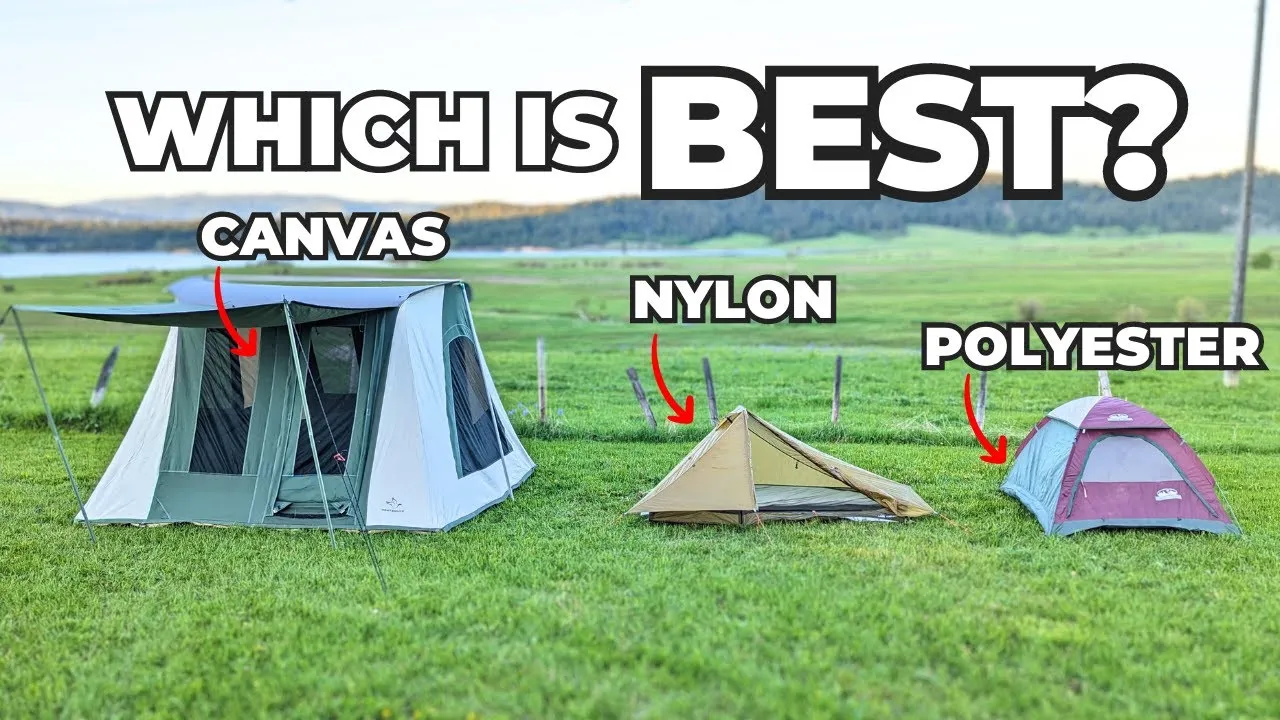
After testing dozens of tents across six continents, I've learned that determining what is the toughest tent material requires understanding multiple strength metrics. The key factors include denier rating (fabric thickness), tear strength, waterproof ratings, and UV resistance. During my expeditions to places like Denali and the Himalayas, I've seen how these factors work together to create truly durable shelter.
Denier measures the weight and thickness of fabric fibers - higher numbers indicate thicker, stronger materials. However, I've discovered that a 70D silnylon can outperform a 200D polyester in real-world conditions due to superior fiber quality and coating technology. The toughest tent materials also incorporate ripstop construction, where thicker threads create a grid pattern to prevent tear propagation.
Waterproof ratings, measured in millimeters of water column, determine how much water pressure fabric can withstand before leaking. From my experience camping in Pacific Northwest storms, anything below 3,000mm will eventually fail in sustained heavy rain. The best materials combine high waterproof ratings with breathability to prevent condensation buildup. When considering most durable tent options, UV resistance is equally crucial, as I've seen expensive tents degraded by sun exposure in desert environments.
Pro Tip: The toughest tent material for your needs depends on your specific use case. Alpine climbers need different materials than car campers or festival-goers.
Dyneema: The Ultimate Tent Material
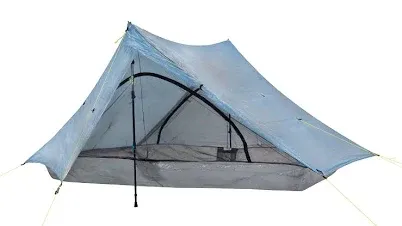
When discussing what is the toughest tent material, Dyneema Composite Fabric (DCF) consistently emerges as the ultimate choice for ultralight strength. Made from ultra-high molecular weight polyethylene fibers sandwiched between polyester films, Dyneema offers an incredible 15 times the strength of steel by weight. I first encountered Dyneema during a solo trek in Alaska, where my tent endured three days of continuous 60mph winds without a single tear.
The strength-to-weight ratio of Dyneema is simply unmatched in the tent industry. A typical Dyneema tent weighs 40-50% less than equivalent nylon tents while offering superior tear resistance. However, this performance comes at a premium price point - expect to pay $600-$1200 for quality Dyneema shelters. For serious backpackers and mountaineers asking what is the toughest tent material for extreme conditions, Dyneema represents the pinnacle of tent technology.
🏆 Premium Dyneema Tent Recommendation
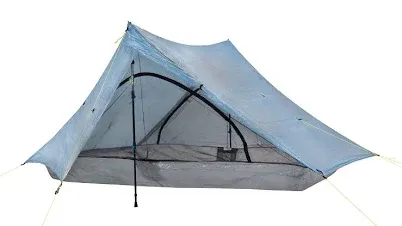
Zpacks Duplex Tent - $699
The gold standard in ultralight Dyneema tents. Two-person capacity at just 19 ounces!
Check Price on AmazonOne limitation I've discovered with Dyneema is its sensitivity to heat - the material can melt at relatively low temperatures, making it unsuitable for hot tent camping with wood stoves. Additionally, Dyneema doesn't stretch, which can stress seams and guy-out points more than flexible materials. Despite these considerations, when people ask me what is the toughest tent material for weight-conscious adventures, Dyneema remains my top recommendation for experienced users willing to invest in premium gear.
Ripstop Nylon: The Backpacker's Choice
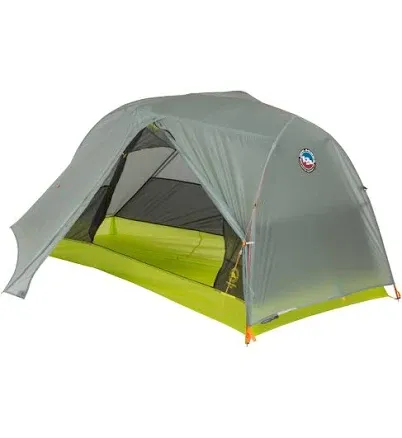
Ripstop nylon, particularly when silicone-treated (silnylon), represents the sweet spot for most backpackers wondering what is the toughest tent material for their budget. During my through-hike of the Continental Divide Trail, my silnylon tent survived everything from Colorado hailstorms to Montana blizzards. The ripstop grid construction prevents small tears from propagating into major failures, making it incredibly reliable for extended wilderness use.
The key advantage of ripstop nylon lies in its balance of strength, weight, and cost. Quality 40D ripstop nylon weighs significantly less than polyester while offering superior tear resistance. Silicone coating adds waterproofing while actually strengthening the fabric fibers, unlike polyurethane coatings that can weaken the base material. When properly treated, ripstop nylon can achieve waterproof ratings of 3,000-5,000mm, suitable for most conditions.
⭐ Best Value Ripstop Nylon Tent
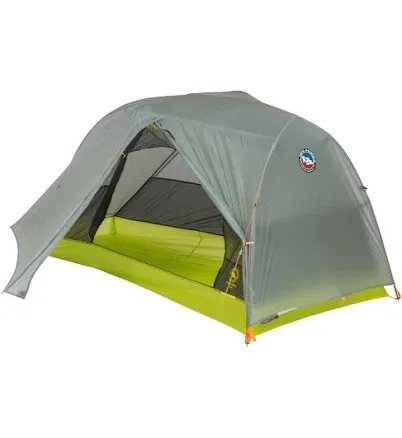
Big Agnes Tiger Wall UL2 - $479.95
Premium ripstop nylon construction with excellent durability and weather protection.
Shop on AmazonOne consideration with ripstop nylon is its susceptibility to UV degradation over time. During my season as a wilderness guide in the Southwest, I noticed significant color fading and fabric weakening in tents exposed to intense sunlight. However, for most backpackers asking what is the toughest tent material for three-season use, quality ripstop nylon offers an excellent combination of performance and affordability. The material also packs smaller than canvas or heavy polyester, making it ideal for heavy duty tent applications where weight matters.
Canvas: Traditional Durability
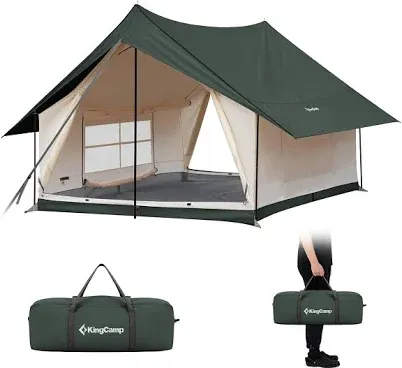
When discussing what is the toughest tent material for permanent or semi-permanent installations, canvas remains unmatched for pure durability and longevity. My family's canvas wall tent has sheltered hunting camps for over 20 years, surviving everything from prairie windstorms to heavy snow loads. Canvas tents offer unparalleled breathability, reducing condensation issues that plague synthetic materials.
Traditional cotton canvas derives its strength from the natural fiber weave and substantial weight - typically 12-16 ounces per square yard compared to 2-4 ounces for backpacking materials. This weight translates directly to durability and weather resistance. Canvas tents naturally tighten when wet, creating an incredibly weatherproof shelter that actually improves in rain. For those wondering what is the toughest tent material for base camps and hunting expeditions, canvas provides the ultimate long-term shelter solution.
🏕️ Premium Canvas Tent Choice
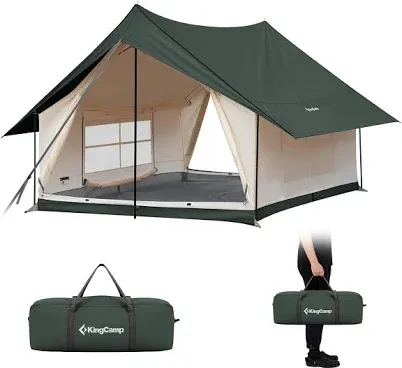
Kodiak Canvas Cabin Lodge - $849.99
Heavy-duty cotton canvas construction built to last decades in harsh conditions.
Buy on AmazonThe biggest drawback of canvas is its weight—a family-sized canvas tent can range from 40 to 80 pounds, making it impractical for backpacking. It also takes more time and effort to set up compared to modern pole systems. However, for uses such as long-term living or extended base camps, canvas offers superior comfort and durability. Its natural cotton breathability creates a more pleasant interior environment, particularly in fluctuating temperatures.
PVC Coated Materials: Commercial Grade
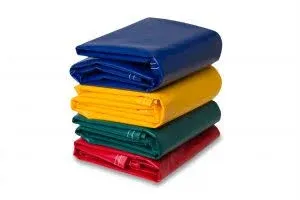
For commercial applications and extreme weather protection, PVC-coated materials represent the ultimate answer to what is the toughest tent material available. During my work with emergency response teams, I've seen PVC-coated shelters withstand hurricane-force winds and sustained heavy rain that would destroy conventional camping tents. The polyvinyl chloride coating creates a completely waterproof barrier while the underlying polyester or vinyl base provides structural strength.
PVC-coated fabrics typically range from 16-22 ounces per square yard, making them extremely robust but heavy. The coating provides excellent UV resistance and flame retardancy, crucial for military and emergency applications. When people ask what is the toughest tent material for industrial use, commercial outfitters, or extreme weather conditions, PVC-coated materials consistently outperform other options in pure durability metrics.
The main drawbacks of PVC materials include significant weight, reduced breathability, and higher cost. These materials also perform poorly in extreme cold, becoming stiff and brittle. However, for specific applications like emergency shelters, commercial events, or situations requiring maximum weather protection, PVC-coated fabrics provide unmatched performance. Some manufacturers now offer lighter PVC formulations that maintain strength while reducing weight penalties.
Important Note: PVC materials require special care and storage to prevent cracking and degradation over time.
Choosing the Right Material
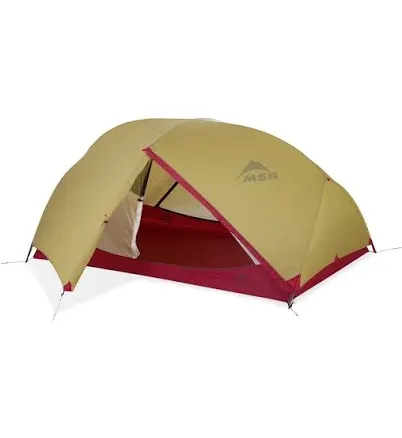
After years of field testing and helping customers choose gear, I've developed a systematic approach to answering what is the toughest tent material for individual needs. The selection process depends on several key factors: intended use, weight requirements, budget constraints, and environmental conditions. Understanding these factors helps narrow down the ideal material choice from the many excellent options available.
For ultralight backpacking and mountaineering, Dyneema offers unmatched strength-to-weight ratios despite the premium cost. Three-season backpackers will find ripstop nylon provides excellent durability and weather protection at reasonable prices. Car campers and base camp applications benefit from canvas materials that prioritize comfort and longevity over weight. Commercial and emergency applications require PVC-coated materials for maximum weather resistance.
🎯 Reliable All-Around Choice
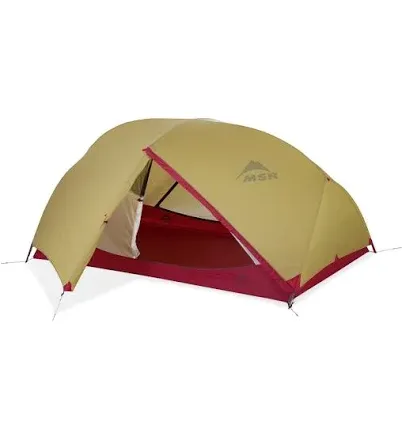
MSR Hubba Hubba 2 - $384.97
Proven polyester construction with excellent weather protection and reasonable weight.
Check Amazon PriceClimate considerations also influence material selection significantly. Desert environments demand UV-resistant materials like quality polyester or PVC coatings. Tropical conditions require maximum breathability, making canvas or high-quality ripstop nylon ideal choices. Arctic conditions call for materials that remain flexible in extreme cold, where Dyneema and quality nylon excel over PVC alternatives.
Budget considerations often drive final decisions when determining what is the toughest tent material for specific needs. While Dyneema offers ultimate performance, quality ripstop nylon provides 80% of the benefits at 40% of the cost. Military surplus canvas tents offer incredible durability at budget prices, though with significant weight penalties. Understanding these trade-offs helps make informed decisions based on individual priorities and constraints. For those interested in professional-grade options, researching what tents do special forces use provides insights into materials chosen for ultimate reliability.
💎 Ultra-Premium Option
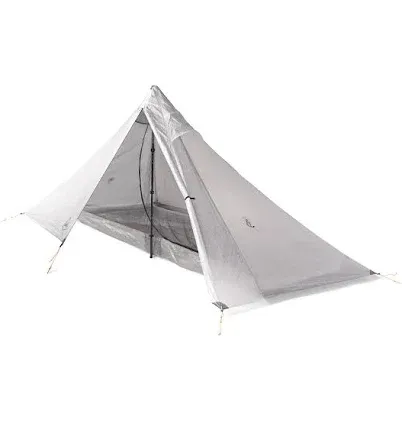
Hyperlite Mountain Gear UltaMid 2 - $699
Premium Dyneema construction for serious mountaineers and ultralight enthusiasts.
View on AmazonConclusion
After extensive field testing and research, the answer to what is the toughest tent material depends entirely on your specific needs and priorities. Dyneema Composite Fabric represents the ultimate in strength-to-weight performance for ultralight applications. Ripstop nylon offers the best balance of durability, weight, and cost for most backpackers. Canvas provides unmatched longevity and comfort for base camps and permanent installations. PVC-coated materials deliver maximum weather protection for commercial and emergency applications.
My years of experience testing tents in extreme conditions have taught me that material quality matters more than marketing claims. Invest in reputable manufacturers who use genuine ripstop construction, quality coatings, and proven fabric blends. Consider your specific use case carefully - the toughest tent material for weekend car camping differs significantly from materials needed for Himalayan expeditions or emergency response.
Remember that tent durability depends on more than just fabric choice. Proper care, appropriate use, and quality construction all contribute to long-term performance. Whether you choose budget-friendly ripstop nylon or premium Dyneema, understanding material properties helps you make informed decisions and get maximum value from your investment. The outdoor industry continues evolving, with new materials and treatments regularly improving tent performance across all price points.
Ultimately, the toughest tent material is the one that meets your specific needs while providing reliable shelter in your chosen environments. Consider your budget, weight requirements, intended use, and environmental conditions when making this important decision. What is the toughest tent material for your adventures? The answer lies in matching material properties to your specific outdoor pursuits and priorities.
📚 Continue Your Tent Research
Explore more comprehensive guides to help you choose the perfect tent for your outdoor adventures:


